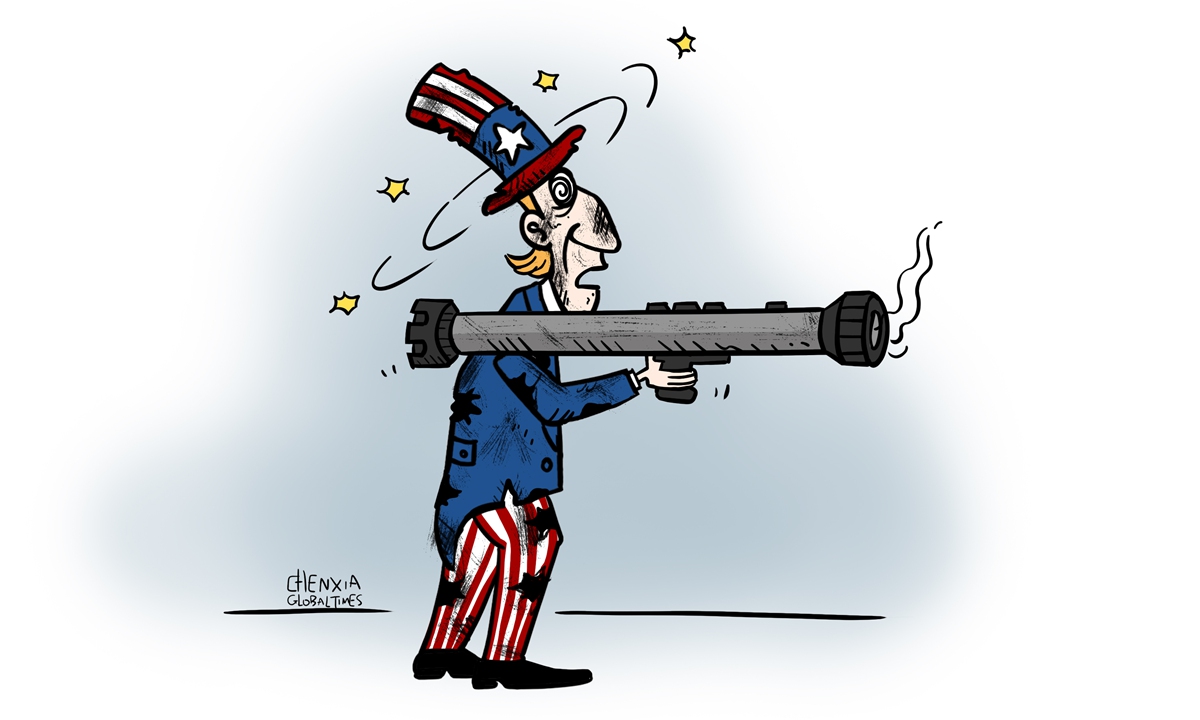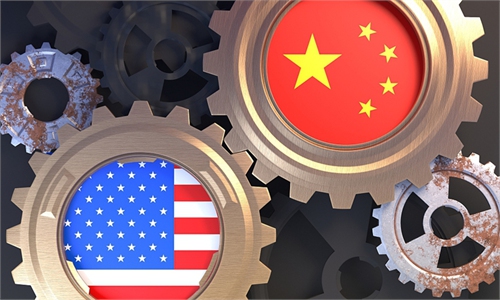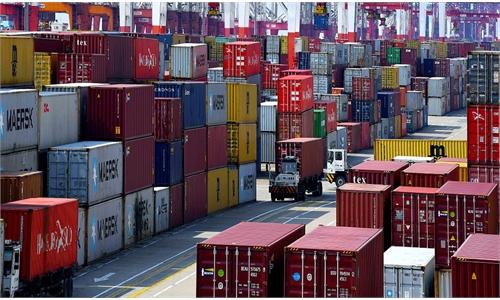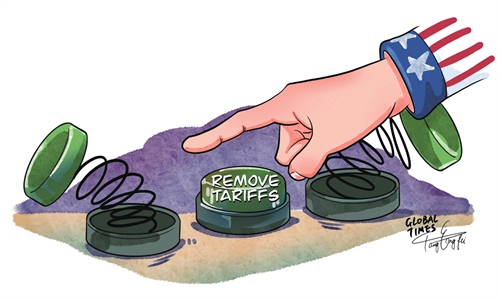
Illustration: Chen Xia/GT
In its annual trade policy agenda released on Tuesday, the Office of the US Trade Representative (USTR) claimed that the Biden administration is realigning its trade policy toward China, looking at all existing tools and potentially new ones to combat China's "nonmarket practices," the Wall Street Journal reported.
Threatening China with fabricated accusations, and then resorting to maximum pressures during negotiations to maximize the US' interests, this is the US' well-worn tactic in dealing with trade issues with China. The real purpose behind the tough rhetoric of the USTR this time is also seeking extra leverage in trade. Yet, such a tactic may just fail as before.
Despite the lack of details, the USTR's annual trade policy agenda does set the tone for US trade policy toward China this year. The Biden administration could potentially instigate another round of trade tension with China in the name of so-called countervailing investigation or other excuses. Such possibility can't be ruled out.
In addition, the USTR also said it is "accelerating joint work with allies and partners" to compete with China's "harmful" trade practices, according to the South China Morning Post. It is highly likely that the US will try to take advantage of the Russia-Ukraine conflict to further reinforce a unified position among Western countries, so as to gain stronger leverage in other international affairs. The US may try to hijack allies over trade with China in the future.
Given the above points, China should prepare for the worst scenarios while engaging in trade talks with the US. Given the US' hostile stance, there seems little wiggle room for de-escalation in US-China trade relations in the near term. The US apparently refuses to view economic cooperation and competition with China rationally. China must both make psychological preparation and bolster its policy reserves to deal with potentially protracted trade tensions with the US.
Crucially, China has not and will not be intimidated either. As the failure of the Trump administration's trade war was obvious to all, grappling with economic predicament at home, the Biden administration will face a trickier situation, if it opted to act on escalating trade tension with China.
For starters, it will face stronger backlash in the international community. The anti-globalization action of US protectionism, hegemony, and unilateralism is untenable. Many countries can't accept the practice of the US initiating sanctions through trade protectionism. Therefore, the US does not dare rashly escalate trade tensions with China.
Second, escalating trade tensions with China will further hurt the US economy. Even though it's plain for all to see the Trump administration's reckless trade war was a total failure - failing all pre-set goals while causing severe adverse impact on the US economy - the Biden administration's assessment on the matter has apparently reached a completely wrong conclusion. If Biden's trade team continues to follow Trump's failed path, the US economy is bound to face an even bigger loss.
Third, it will sink the Biden administration into an even deeper policy dilemma. US policymakers have already been caught in the middle between monetary easing to boost the economy and tightening to ease the inflation. It is actually not a simple policy choice, but a more profound economic dilemma stemming from its violation against the basic laws of the market economy and free trade. If the US government continues to politicize and weaponize economic issues, it will only face bigger problems.
The author is an editor with the Global Times. bizopinion@globaltimes.com.cn



